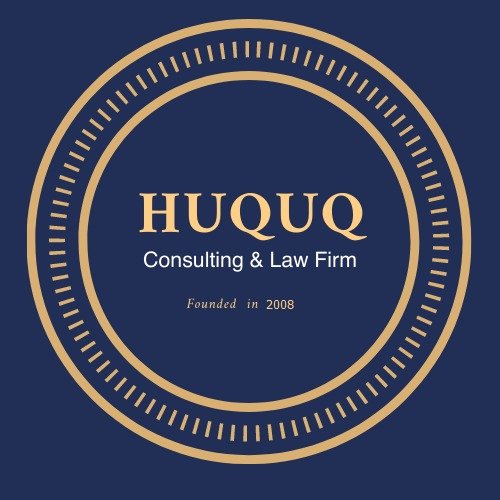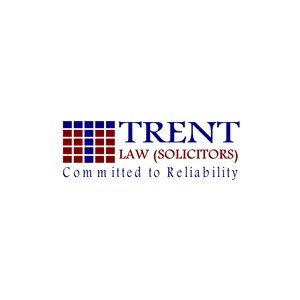Best Tax Increment Financing Lawyers in Sheffield
Share your needs with us, get contacted by law firms.
Free. Takes 2 min.
List of the best lawyers in Sheffield, United Kingdom
About Tax Increment Financing Law in Sheffield, United Kingdom
Tax Increment Financing (TIF) is a public financing method used for subsidizing infrastructure and community improvement projects in Sheffield, United Kingdom. With TIF, future tax revenues are projected, borrowed against, and used to fund improvements in designated TIF districts. These are areas identified by the local government that require redevelopment or have significant economic potential. The idea is that the investments made with TIF will lead to job creation and higher property values, thus generating additional tax revenue.
Why You May Need a Lawyer
Navigating the complexities of TIF can be challenging, and there are several situations where obtaining legal advice might be crucial:
- Project Development: If you're a developer looking to undertake a project in a TIF district, legal advice is essential to ensure compliance with all regulations.
- Property Acquisition: If property related to a TIF project is being acquired, an attorney can help negotiate the terms.
- Financing and Investment: Those securing funds or investing in TIF projects can benefit from legal insight on financial structuring.
- Government Interaction: Legal guidance can aid in interacting with local governmental bodies and understanding policy changes.
- Resolving Disputes: Legal representation may be necessary to resolve conflicts related to property or project management within TIF districts.
Local Laws Overview
The laws governing TIF in Sheffield are framed by both national legislation and local government policies. Key aspects include:
- Designation of TIF Districts: Local councils define TIF districts based on criteria like economic need and redevelopment potential.
- Funding Mechanisms: Rules regarding how funds are borrowed and allocated for TIF projects, including state-aided bonds.
- Mandatory Public Consultation: Statutory requirements to engage with the community during the planning and execution of TIF initiatives.
- Project Approval Process: Multiple stages of application, review, and approval exist for projects proposing to use TIF funds.
- Impact Assessments: Regulations require assessments of the potential social, economic, and environmental impacts of TIF projects.
Frequently Asked Questions
1. What is a TIF district?
A TIF district is a designated area identified by the local government where improvements will be funded by future tax revenue increases within the district.
2. How are TIF funds used?
TIF funds are utilized to finance infrastructure projects, stimulate economic development, and improve community facilities within the district.
3. Who can propose a TIF project?
Typically, local governments, developers, and occasionally community organizations can propose TIF-funded projects.
4. What are the benefits of TIF?
TIF helps stimulate economic growth, increase property values, and create jobs by funding essential improvements without raising taxes immediately.
5. Are there any risks associated with TIF?
Yes, risks include over-estimating future tax revenue, potential negative impact on existing businesses, and financial mismanagement.
6. How long does a TIF district last?
A TIF district typically lasts around 15-25 years or until the debt is paid off, though specific timelines can vary.
7. Is public input required in TIF decisions?
Yes, public consultation is often a requirement during the planning stages of a TIF project to ensure community needs are addressed.
8. How does TIF affect property taxes?
Property tax rates do not increase directly because of TIF; instead, incremental tax revenues from the increased property value fund the projects.
9. Can residential properties be included in TIF districts?
Yes, residential areas can be part of TIF districts, especially if housing improvements are part of the redevelopment plans.
10. What happens after a TIF district is terminated?
Once a TIF district is terminated, the incremental tax revenue reverts to the general funds of the local government entities involved.
Additional Resources
For further information on TIF in Sheffield, consider exploring the following resources:
- Sheffield City Council’s Planning Department: Provides details on current and proposed TIF projects.
- The UK Government’s Department for Levelling Up, Housing & Communities: Offers guidance on TIF regulations and policies.
- Local Economic Development Agencies: Can assist with advice and support for businesses interested in TIF opportunities.
- Community Development Corporations: These organizations often work within TIF districts to facilitate public-private partnerships.
Next Steps
If you require legal assistance with TIF in Sheffield, consider taking the following steps:
- Consult with a Legal Expert: Seek out attorneys or law firms with specializations in public finance and urban development.
- Engage with Local Authorities: Contact the Sheffield City Council for information on specific TIF projects and processes.
- Join Public Meetings: Attend public consultations to stay informed and express any concerns or support.
- Network with Relevant Stakeholders: Engage with developers, local businesses, and community groups involved in TIF projects to gain diverse perspectives.
Lawzana helps you find the best lawyers and law firms in Sheffield through a curated and pre-screened list of qualified legal professionals. Our platform offers rankings and detailed profiles of attorneys and law firms, allowing you to compare based on practice areas, including Tax Increment Financing, experience, and client feedback.
Each profile includes a description of the firm's areas of practice, client reviews, team members and partners, year of establishment, spoken languages, office locations, contact information, social media presence, and any published articles or resources. Most firms on our platform speak English and are experienced in both local and international legal matters.
Get a quote from top-rated law firms in Sheffield, United Kingdom — quickly, securely, and without unnecessary hassle.
Disclaimer:
The information provided on this page is for general informational purposes only and does not constitute legal advice. While we strive to ensure the accuracy and relevance of the content, legal information may change over time, and interpretations of the law can vary. You should always consult with a qualified legal professional for advice specific to your situation.
We disclaim all liability for actions taken or not taken based on the content of this page. If you believe any information is incorrect or outdated, please contact us, and we will review and update it where appropriate.













